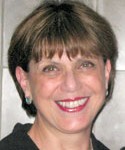By Margot Birke
In order to understand Medicaid qualifications, you first need to know how Medicaid treats your assets. Basically, Medicaid breaks your assets down in to two separate categories. The first is those assets that are exempt, and the second is those assets, which are non-exempt, or countable.
 Exempt assets are those that Medicaid will not take into account (at least for now). In Massachusetts these are the following:
Exempt assets are those that Medicaid will not take into account (at least for now). In Massachusetts these are the following:
•Your home must be your principal place of residence and you cannot have an equity value greater that $750,000, unless you have a spouse or certain other individuals living in the home.
•Household and personal belongings, such as your furniture, appliances, jewelry, and clothing.
•One car: If you have a spouse at home there is no limit on the value of the car. If you are single, there is a limit on the value of the car.
•Prepaid funeral plans and cemetery plot.
•Burial account of $1,500.
•Cash value of life insurance policies. As long as the total face value of all policies does not exceed $1,500. Term life insurance, regardless of the amount is exempt.
•Cash cannot exceed $2,000. If you have a spouse at home, he or she may keep significantly more.
Most other assets are countable such as checking accounts, savings accounts, certificates of deposit, money market accounts, stock, mutual funds, bond, IRAs, pensions, second cars, etc.
While there are some minor exceptions to these rules, for the most part, all money and property, as well as any item that can be valued and turned into cash is a countable asset, unless listed earlier as exempt.
While the Medicaid rules themselves are complicated and somewhat tricky, for a single person it’s safe to say that you will qualify for Medicaid as long as you have only except assets plus a small amount of cash.
For a spouse at home, he or she can keep up to $109,560 off the top. There are some things that can be done to protect assets beyond those levels.
This issue is designed to review the basics in a way that a caseworker will look at your assets and decide which category to put them in.
Attorney Margot G. Birke is the founder and President of Elder Law Solutions located in Newburyport, Massachusetts. She may be reached at 978-465-5407 or by e-mail at mgbirke@elderlaw-solutions.com or view more information online at www.elderlaw-solutions.com. Archives of articles from previous issues can be read at www.fiftyplusadvocate.com.












